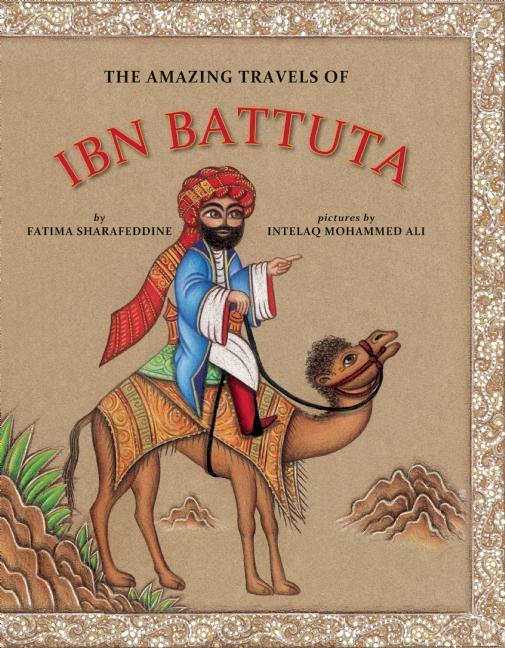The Amazing Travels of Ibn Battuta
by Fatima Sharafeddine and Intelaq Mohammed Ali
15 Total Resources Book Resume View Text Complexity Discover Like Books
- Grade
- 5-8
- Genre
- Biography
- Nonfiction
- Picture Book
- Cultural Experience
- Muslim
Year Published 2014
- Text Complexity
- Lexile Level: 960L
- ATOS Reading Level: Currently Not Available
- Curricular Area
- English Language Arts
- Social Studies
- Lists With This Book
- Muslim Leaders
Our Original Resources 7
Audio Name Pronunciation with Fatima Sharafeddine
Created by TeachingBooks
Cultural Representation Reflection
Created by TeachingBooks
Story Map Multi-Leveled Lesson
Created by TeachingBooks
Nonfiction Read and Respond Multi-Leveled Lesson
Created by TeachingBooks
Vocabulary Graphic Organizers
Created by TeachingBooks
Comprehension Graphic Organizers
Created by TeachingBooks
Submit Qualitative Text Complexity Rubric
Created by TeachingBooks
Book Guides, Activities & Lessons 5
Cultural Representation Reflection
Created by TeachingBooks
Story Map Multi-Leveled Lesson
Created by TeachingBooks
Nonfiction Read and Respond Multi-Leveled Lesson
Created by TeachingBooks
Comprehension Graphic Organizers
Created by TeachingBooks

Educator's Guide from House of Anansi Press
Created by House of Anansi Press
Vocabulary Resources 1
Vocabulary Graphic Organizers
Created by TeachingBooks
If you find a 3rd party resource that isn't accessible to you, please email the name and link of the resource, as well as any details about your needs, to accounts@TeachingBooks.net.
Images courtesy of publishers, organizations, and sometimes their X (formerly Twitter) handles.



